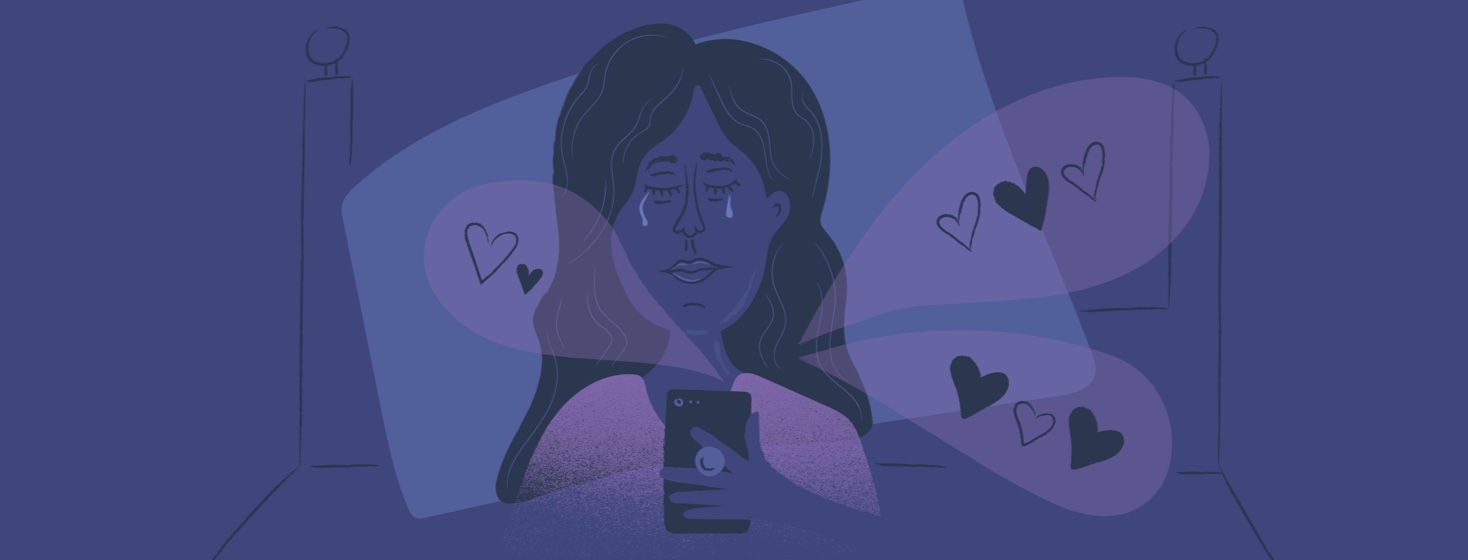Ways I Find Emotional Support During the Night
My experience with insomnia began when I was too young to know what it was called. I struggled to fall asleep. I struggled to sleep through the night. I struggled to feel awake in the mornings. I struggled with exhaustion all of the time.
As I grew, my challenges with insomnia evolved. I vividly remember nights in both high school and college where I used my ability to stay awake to my advantage, cramming in paper writing and exam studying and balancing the next day's fatigue with caffeine.
The downside for me was not every night required a marathon school session, and on the nights without work – I couldn’t just find a normal routine. I couldn’t just fall asleep.
Searching for connection late at night
Without the ability to get good rest, I would find myself awake at all hours of the night, scrolling through AIM buddy lists and later, Facebook newsfeeds, searching for someone to connect with.
Sometimes I felt so lonely during that time that I desperately just wanted to chat with someone else who was awake – regardless of if their being awake was intentional or accidental. I became famous for sending “You Up” texts to friends between midnight and 5 a.m., always making sure to preface the message with “Everything's ok.”
Other conditions amplified my insomnia
In the years after college graduation, I began struggling with the symptoms of Crohn’s disease and the effects of chronic and debilitating pain. As you can probably imagine, this amplified my insomnia in new ways. When I was tired enough to sleep, I was either running to the bathroom or curling up in pain, and drifting off was basically impossible.
These middle of the nights turned emotional, quickly. While I could usually find a good show to watch in the hours of darkness, I often found myself feeling sad, frustrated, lonely, and vulnerable.
Highs and lows of emotional support
There were some seasons of life in which I got lucky – I had friends teaching abroad (in different timezones), or friends working night shifts in hospitals, or other friends suffering with chronic illness symptoms impacting their sleep schedules as well.
These nights constantly involved a flurry of text messages, sending links back and forth, and entertaining/empathizing with each other throughout the harder stretches. There were other seasons in which...I struggled. The time I laid awake during the night left me depleted, not just physically but emotionally too.
Over time, I’ve worked to develop strategies to ensure I can find the emotional support I need, regardless of what time it is, who’s awake (or asleep), and how I am feeling. I thought it might be helpful to share those suggestions with you!
My go-to strategies
Save photos, videos, messages, and notes from friends. Have these in a spot on your phone you can easily and quickly access during the night. Use those items to remind yourself that you’re loved and supported and that you have people in your corner, even if you can’t connect with them at the moment.
Ask your family or friends to record voice memos or messages for you specifically for this period of time. If hearing a loved one's voice provides you comfort, a recorded message is the next best thing to them being on the other end of the phone!
Comfort yourself. In times of insomnia struggles, it’s important for me to have a book to read or a show to binge-watch during the night. Something that can take my focus and my attention, and I can find comfort and distraction. This extends to clothes, blankets, snacks, and anything else in which you can prepare yourself to feel supported while you’re awake and lonely.
If you’ve struggled with vulnerability and emotionality as a side effect of insomnia, I’d love to hear what else you’d add to my list!

Join the conversation